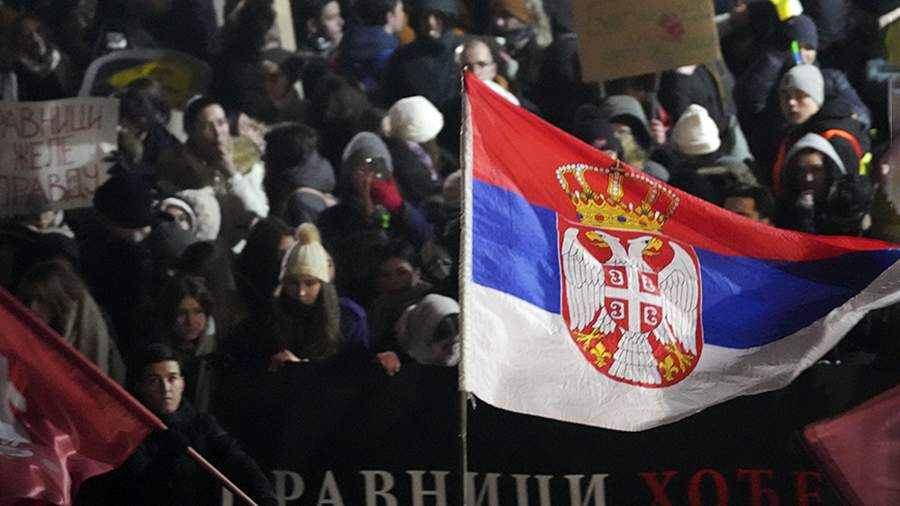Political analyst expressed doubts about Vucic's ability to postpone the next wave of protests
- Новости
- Policy
- Political analyst expressed doubts about Vucic's ability to postpone the next wave of protests

The resignation of half of Serbia's cabinet will not help the country's president Aleksandar Vucic to postpone the next wave of protests for long, as they are caused by external influence from the West. Political scientist Alexander Asafov pointed this out in a conversation with Izvestia on January 28.
The day before, Vucic said he expects more than 50% of the current cabinet to be replaced, the Serbian daily Novosti reported. He emphasized that the state must function, and the current situation in the country has shown who is ready to work and who is not. Thus, already on Tuesday, the country's Prime Minister Milos Vucevic left his post, journalists reported.
Commenting on this, Asafov admitted that the anti-crisis measures taken can reduce tension and show a part of civil society that the head of state is ready for changes in the higher echelons of power to change approaches to work. However, the newspaper's interlocutor expressed doubt that such steps would lead to a settlement of the protest situation.
"The formal reason for all the unrest is the tragedy in Novi Sad with the communication of the building, and all the demands of the protesters in this part have already been met. And he (Vucic. - Ed.) goes further, showing that such situations will not happen again, because he will make such serious changes in the government. But as long as the protests are a reflection of external Western pressure, they (the protesters. - Ed.) need, in principle, any reason," summarized the expert.
He also recalled that the American ex-Secretary of State Rex Tillerson threatened Vucic with mass protests in Serbia for his more pro-Russian stance than the West needs.
The train station canopy collapsed in the city of Novi Sad on Nov. 1 last year. The accident killed 14 people. Serbian authorities declared November 2 a day of mourning for the victims. At the same time, January 19, Vucic said about Western attempts to organize a color revolution in Serbia.
Earlier, November 4, Serbian Minister of Construction, Transport and Infrastructure Goran Vesic resigned after the incident. Back in November, Vucic said that this dismissal "was only the beginning" and that a series of resignations would soon take place in the country.
After that, Serbian students and the opposition began protests in different cities of the country. Thus, on January 27, the media reported that protesters began a 24-hour blockade of one of the busiest traffic junctions in Belgrade.
Переведено сервисом «Яндекс Переводчик»
